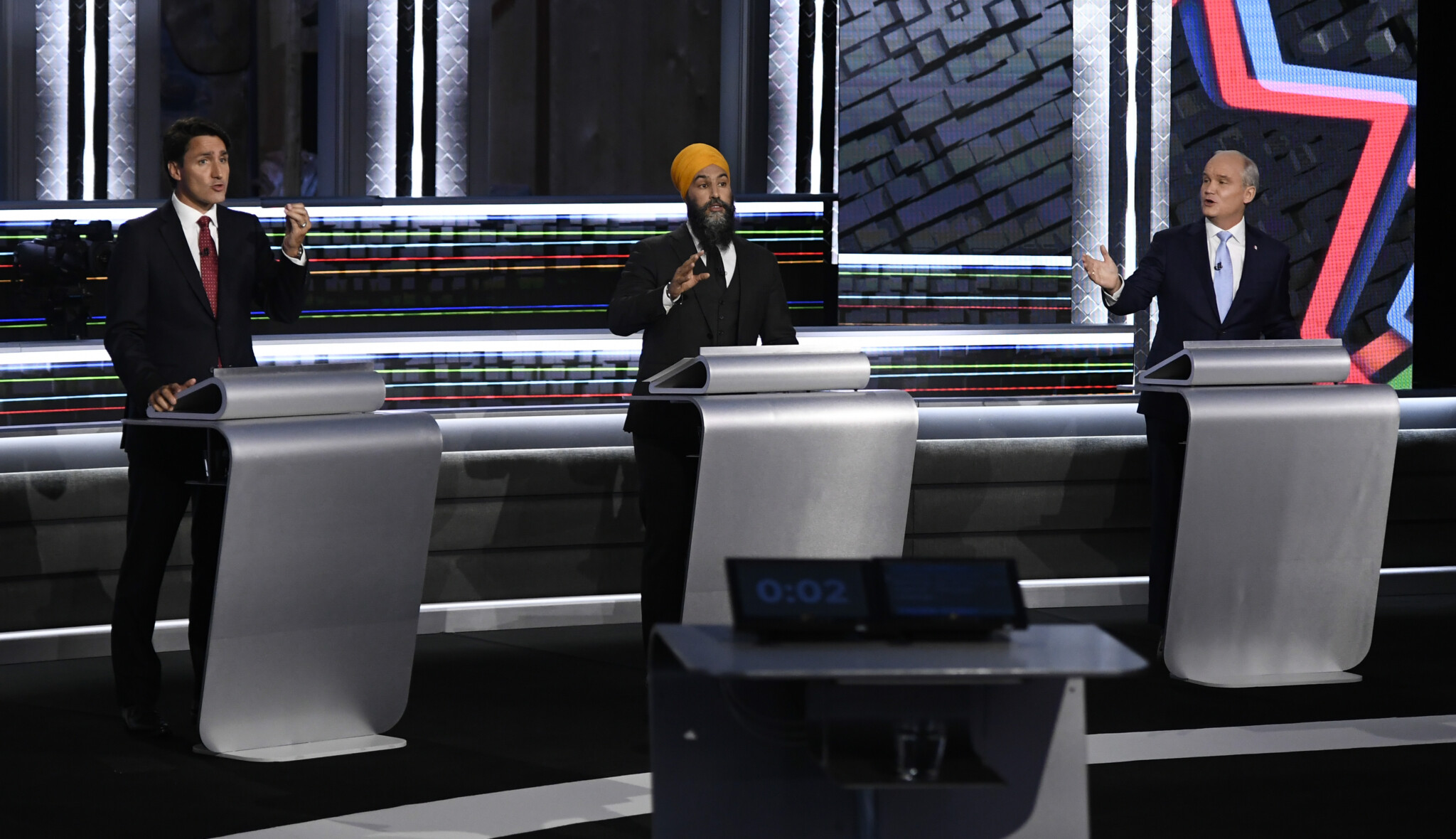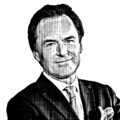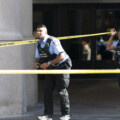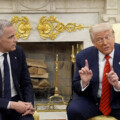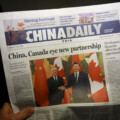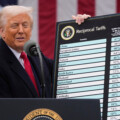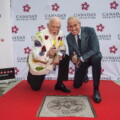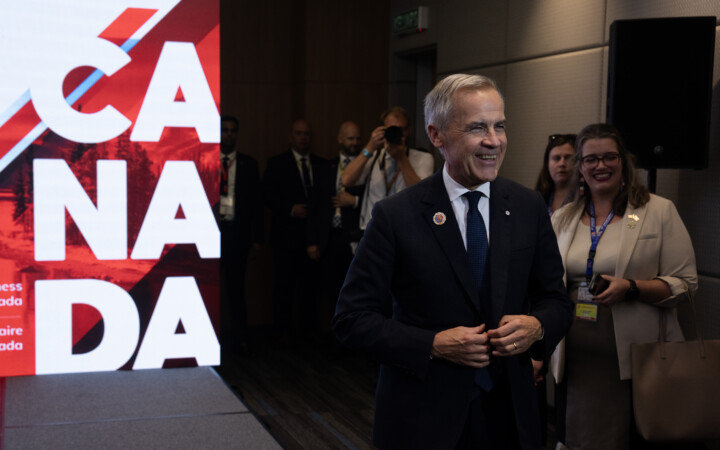Now that Jagmeet Singh has ended the NDP’s Confidence and Supply Agreement with the Liberals, raising the prospect of a federal election happening sooner rather than later, Conservative leader Pierre Poilievre should move immediately to declare that he will not take part in debates organized by the Leaders’ Debates Commission.
The Trudeau government-conceived, funded, and appointed commission, which included David Johnston as its inaugural commissioner, should have died a quiet death after the 2021 federal vote, when it organised, for the second federal election in a row, two disastrous leaders debates.
By stating now that he will boycott commission-sanctioned debates, Mr. Poilievre can perform a lasting public service for himself, his party, and Canadians.
First, his refusal to participate in the bureaucrat-coordinated, taxpayer-funded debates would be a principled stand against the relentless intrusion of the state into the writ period.
Canada has some of the most “state-involved” federal elections in the Western world. Individuals are limited to $1,725 in annual donations to political parties. Corporate and union contributions are banned. Third-party spending is curtailed to the point it arguably limits free speech rights. The Parliamentary Budget Office costs political parties’ platforms. And the news media receives hundreds of millions in government subsidies to cover politics and elections.
The very existence of a government debates commission, created by the incumbent party and prime minister, is simply the latest and arguably one of the most egregious examples of “state-sanctioned” election interference. It runs counter to the rough and tumble origins of our once vibrant Canadian democracy, where civil society and citizens—not the state—make the important decisions about elections and how they are conducted.
The second service Mr. Poilievre’s early rejection of the commission’s debates would do is increase the likelihood of ending what is surely a case study for how to undertake an unnecessary and costly government expenditure, with little or no public benefit.
Before the next federal vote, the Commission appears on track to spend some $10,000,000 in public funds on two elections’ worth of leaders’ debates. These are debates which Globe columnist Andrew Coyne charitably characterized as an “utter, toe-curling embarrassment”, with the 2019 English debate featuring a whopping five moderators. Recall that before the Commission’s creation in 2018, election debates were produced and paid for by the “consortium”, the Orwellian name for the group of broadcasters (CBC, CTV, Global) that opaquely organized federal election debates for going on a generation. Absent Mr. Poilievre’s intervention, Canadians can relish the prospect of the next election featuring more abysmal debates paid for by taxpayers and produced by the same broadcasters who botched the job not once but twice in 2019 and 2021.
The third and perhaps most important contribution Mr. Poilievre could make by spurning the commission in no uncertain terms is to recreate the conditions that lead to a brief renaissance of quality leaders’ debates we witnessed during the 2015 federal election.
That year, Conservative leader Stephen Harper made the bold move of announcing that he would not participate in debates organized by the broadcasters.
As a result of Harper’s principled decision and his subsequent openness to a variety of debate invitations, Canadians were treated to more leaders’ debates in different formats during the 2015 election than at any time in our modern political history.
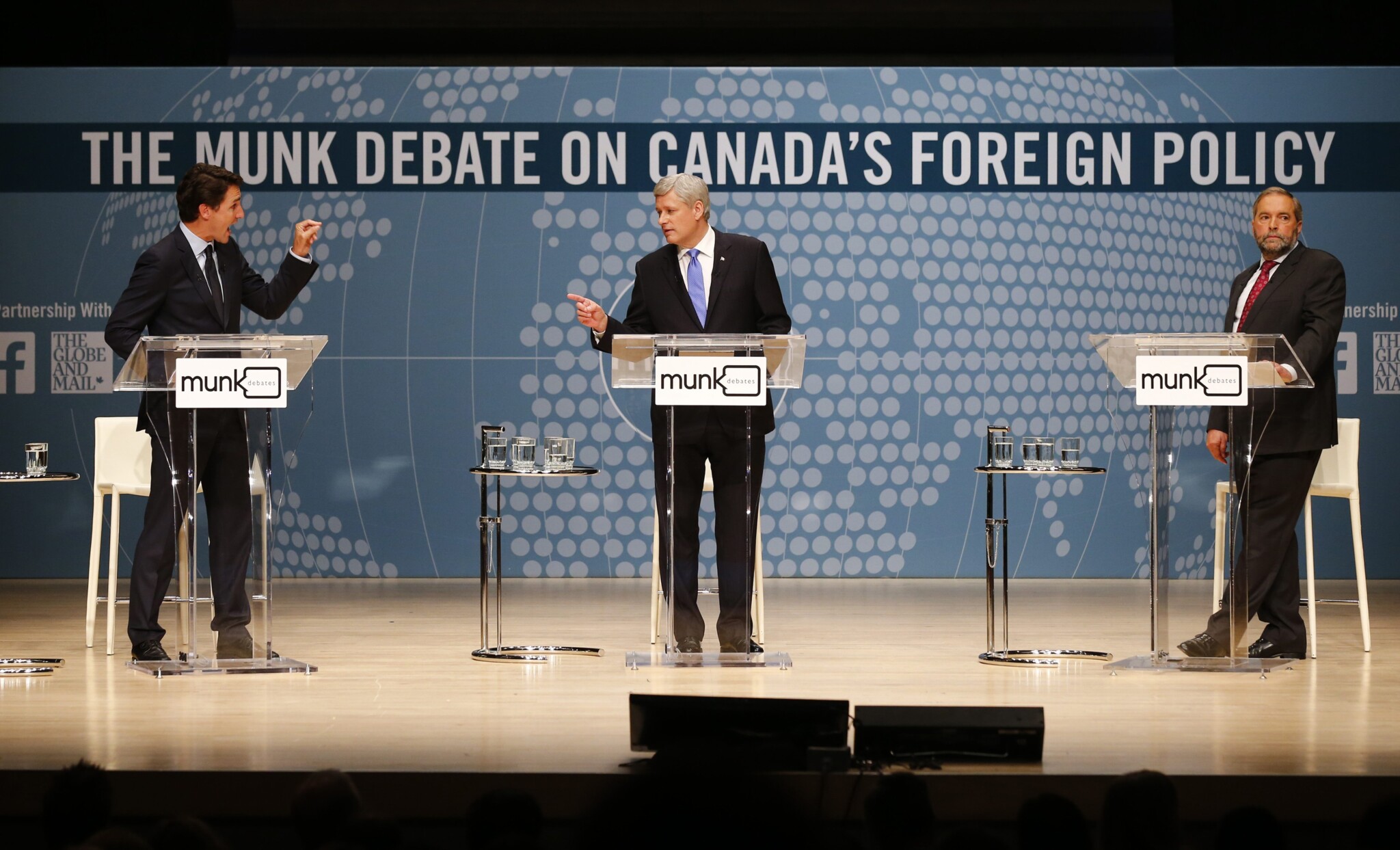
Liberal Leader Justin Trudeau, left to right, Conservative Leader Stephen Harper and NDP Leader Tom Mulcair participate in the Munk Debate on Canada’s foreign policy in Toronto, on Monday, Sept. 28, 2015. Pool-Mark Blinch/The Canadian Press
There were debates dedicated solely to the economy and foreign policy (yours truly moderated the latter), debates by local broadcasters and newspapers, the first-ever bilingual debate, and debates held in front of live audiences of thousands of people. Debates took place not only in Ontario and Quebec (gasp!) but also in important regional centres like Calgary. In short, it was wall-to-wall debates for six marvellous weeks.
The knock on the 2015 election debates were their smaller television audiences. Indeed, the not insignificant decline in viewership was the primary justification used by the Trudeau government to create a state commission to fund and organise debates in 2018.
The reality was the lower viewership stemmed directly from the broadcasters boycotting most of the 2015 debates. The self-serving reason provided at the time was that the “consortium” could not show debates on their airwaves that they hadn’t produced. This despite that broadcasters are CRTC mandated to “inform Canadians about the issues, political parties and candidates involved [in federal elections].”
Fast-forward to 2024, and the profusion of non-broadcaster-controlled live video platforms (YouTube, TikTok, Instagram, Twitch), and there is no reason to think debates produced by groups other than CBC, CTV, Global, and RDI can’t attract large viewing audiences. One might also hope that the now diminished broadcasters, serially dependent on various government subsidies, might actually choose to live up to their regulatory responsibilities during elections to “inform Canadians” and show third-party leaders debates.
So, Mr. Poilievre the ball is in your court. You have a golden opportunity to move now and declare like Stephen Harper in 2015 your principled non-participation in today’s utterly broken and wasteful model of state-funded leaders debates. By doing so, you stand a good chance of preemptively putting the shambolic Leaders’ Debates Commission out of its misery, just as Harper did for the broadcasters and their cartel-like “debate consortium.”
And who knows? In place of the commission, voters might enjoy a repeat of the 2015 campaign, with a variety of debates organized by different groups on different topics, using different formats and locations—all spontaneously arranged by civil society, not the government, to the benefit of voters, democracy, and free speech. Now that would be something to see.
